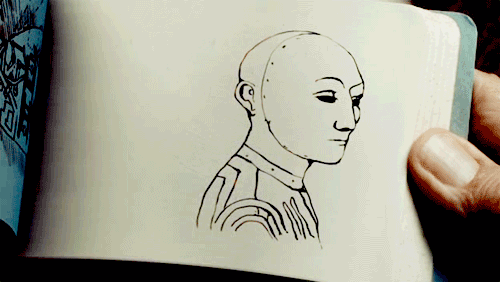Is that Oscar buzz wearing off? Awww. You only have a scant eleven months until the next round of stellar stories vie for competition. Of course, the Oscars are more than just the winners and losers, it’s about the celebration of the wonderful performances and artistic achievements of a medium. But does the medium ever use the medium to celebrate itself?
Not to get all Charlie Kaufman, but yes, that does happen. Let’s take a look at three films that celebrate the power of film, through film.
Cinema Paradiso
In a small town in Sicily, Salvatore (Salvatore Cascio) is mesmerized by the local cinema. By befriending the projectionist (Philippe Noiret), he discovers not only the ways of filmmaking, but of love, friendship, and hardship.
In After Fellini : national cinema in the postmodern age, Millicent Marcus describes Cinema Paradiso thusly:
“Cinema Paradiso is a film that makes film reception its privileged object, and it is here that [director] Tornatore offers his distinctive contribution to the contemporary cinema of nostalgia. Though critics faulted Tornatore’s citations of film classics as arbitrary and unsystematic, his method can be justified as an accurate mimesis of the way in which cinema was experienced by the provincial public of Giancaldo. Tornatore’s random cinematic allusions represent the indiscriminate cinephilia of 1940s and 1950s popular culture, which made of all films, no matter how diverse, one vast invitation to imaginative escape.”
Hugo
The titular Hugo (Asa Butterfield) lives in the Gare Montparnasse train station, minding its clocks. When he repairs an automaton—the last remnant of life with his father—he finds that there is someone special spending their days in the station as well.
Based on Brian Selznick’s book The Invention of Hugo Cabret, this story details the life of early cinema and the magic of the movies. As a film historian himself, Martin Scorcese could not help but have deep personal connections to the story, something that Roger Ebert noted in his review:
“Leave it to Scorsese to make his first 3-D movie about the man who invented special effects. There is a parallel with the asthmatic Scorsese, living in Little Italy but not of it, observing life from the windows of his apartment, soaking up the cinema from television and local theaters, adopting great directors as his mentors, and in the case of Michael Powell, rescuing their careers after years of neglect. …
Scorsese has made documentaries about great films and directors, and here he brings those skills to storytelling. We see Méliès (who built the first movie studio) using fantastical sets and bizarre costumes to make films with magical effects — all of them hand-tinted, frame by frame. And as the plot makes unlikely connections, the old man is able to discover that he is not forgotten, but indeed is honored as worthy of the Pantheon.”
The Purple Rose of Cairo
During the Great Depression, Cecilia (Mia Farrow) frequents the local movie house to escape her loveless and abusive marriage. After watching the titular film a number of times, the actors take notice of her presence, particularly the handsome Tom Baxter (Jeff Daniels).
The draw of films as a form of escapism is a very powerful one. Arguably, it is the main attraction of films. In American Quarterly, David Grimstad breaks down Ceclia’s attraction to films as such:
“For Cecilia, the 1930s Purple Rose offers escape from a troubled life, contact with a world she can’t know directly, and a source of encouragement for her gently humane values. It offers her dreams of “a penthouse, the desert, kissing on the dance floor,” and contact with a world where people are “so beautiful” and speak “so cleverly.” Such possibilities are partly material (she tells Tom with gentle yearning in the penthouse, “Oh! the white telephone. Oh! I’ve dreamed of having a white telephone”), partly scenic (the exotic desert with its pyramids), but primarily romantic and human.”


And let’s not forget that Purple Rose of Cairo (an excellent evocation of the 1930s and its B cinema) suggests that it may be unwise to mistake what we see on the screen with what we commonly refer to as “real life” (unless you’re Martin Scorsese).
Glad you mentioned Charlie Kaufman – Adaptation is one of my favorite films and it fits the theme.
I *loved* Hugo (including wonderful Christopher Lee). Thank you for this great post and the marvelous “flip book” of robot images.